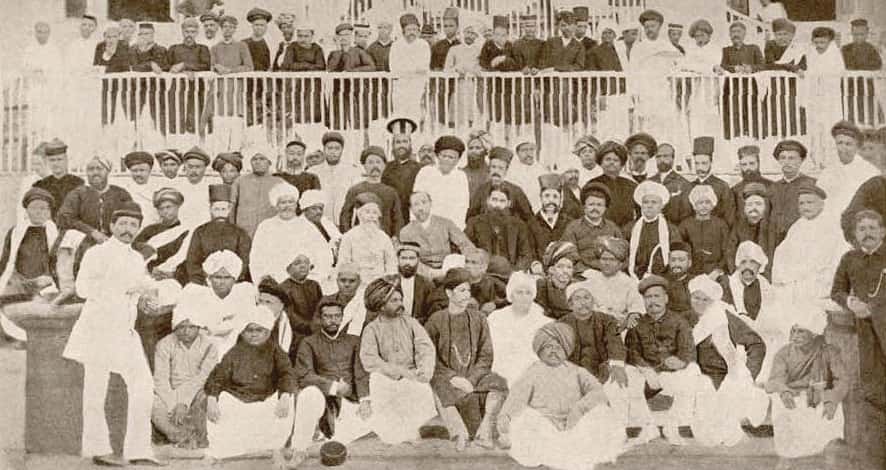Establishment of the Indian National Congress and Its First Session in 1885
History Indian HistoryPosted by NewAdmin on 2025-01-31 09:08:22 |
Share: Facebook | Twitter | Whatsapp | Linkedin Visits: 27

The Indian National Congress (INC) was established on December 28, 1885, marking a significant moment in India’s struggle for self-governance. The formation of the INC was largely driven by Allan Octavian Hume, a retired British civil servant, who believed that creating a political platform for educated Indians would allow them to voice their concerns peacefully. Hume, along with prominent Indian leaders like Dadabhai Naoroji, Surendranath Banerjee, and Dinshaw Wacha, worked towards uniting politically conscious Indians to demand constitutional reforms from British rule.
The first session of the INC was held in Bombay (now Mumbai) from December 28 to 31, 1885, at Gokuldas Tejpal Sanskrit College. The session was attended by 72 delegates from different parts of India, representing a variety of backgrounds, including lawyers, journalists, and intellectuals. The session was presided over by Womesh Chunder Bonnerjee, who became the first President of the INC. This inaugural meeting set the foundation for a nationalist movement that would eventually lead to India’s independence.
During the first session, the INC focused on moderate political demands, as the organization initially sought reform rather than complete independence. Key resolutions passed at the session included demands for greater representation of Indians in government, civil service reforms, and freedom of speech and press. The leaders also called for the protection of the rights of Indian citizens and a reduction in military expenditure, which was draining India’s resources. The session emphasized working within the framework of British rule to seek gradual political change through petitions and negotiations.
The establishment of the INC was a landmark event because it provided a unified platform for Indians to express their political aspirations. Though the British government initially supported its formation, hoping it would serve as a safety valve to prevent revolutionary movements, the INC gradually evolved into the principal force behind India’s struggle for independence. Over the years, the INC shifted from its early moderate approach to more assertive demands for self-rule, particularly under leaders like Bal Gangadhar Tilak, Mahatma Gandhi, and Jawaharlal Nehru.
The first session of the INC in 1885 laid the groundwork for India’s nationalist movement, setting in motion a political awakening that would ultimately lead to freedom from British rule in 1947.
Search
Categories
Recent News
- Chelsea's Cup Dreams Shattered: Fofana's Emotional Exit
- Kante's Turkish Twist: Fenerbahce Seal the Deal
- Kerala Defies Central Advice on Rice Incentives
- Naked Chaos at Bangalore's Elite Club: A Shocking Incident
- Solar Fury: ISRO's Vigil Against Radio Blackout
- Indian Markets: AI Jitters Halt Rally, IT Stocks Take a Hit
- SEBI's Reformative Push for Market Integrity
- South Africa's Cricket Renaissance: A Squad with Depth
Popular News
- Navigating IPO Market Dynamics Amid Volatility and Regulatory Changes
- Massive Worldwide Microsoft Outage Disrupts Multiple Sectors
- Panjapur Bus Stand to Reshape TNSTC Routes
- తెలుగుదేశం పార్టీ - పేదరికాన్ని నిర్మూలించడంలో వాగ్దానం
- Universities Embrace Remote Learning Technologies Amidst Ongoing Pandemic